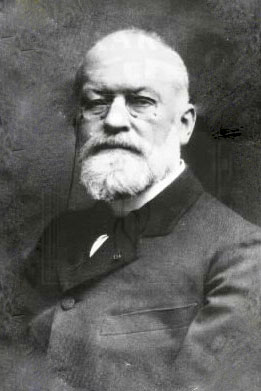Alphonse Laveran facts for kids
Quick facts for kids
Charles Louis Alphonse Laveran
|
|
|---|---|
 |
|
| Born | 18 June 1845 |
| Died | 18 May 1922 Paris, France
|
| Nationality | French |
| Known for | Trypanosomes, malaria |
| Awards | Nobel Prize in Physiology or Medicine (1907) |
| Scientific career | |
| Fields | Medicine |
Alphonse Laveran (born Charles Louis Alphonse Laveran, 18 June 1845 – 18 May 1922) was a French military doctor. He made a huge discovery about how tiny living things can cause serious diseases. For this important work, he won the 1907 Nobel Prize in Physiology or Medicine.
Contents
Who Was Alphonse Laveran?
Alphonse Laveran was a brilliant scientist and a military doctor from France. He spent many years studying diseases that affected soldiers and people in different parts of the world. His work helped us understand how some illnesses spread.
Early Life and Training
Alphonse Laveran was born in Paris, France. His father was also a military doctor. This likely inspired young Alphonse to follow a similar path. He studied medicine and became a doctor for the French army.
Discovering Disease Causes
As a military doctor, Laveran worked in places like Algeria. There, he saw many soldiers suffering from malaria. Malaria is a very serious disease that causes fevers and chills. At that time, people did not know what caused it.
The Malaria Breakthrough
In 1880, while working in Algeria, Laveran made his most famous discovery. He was looking at blood samples from malaria patients under a microscope. He noticed tiny, moving creatures inside the red blood cells. These creatures were protozoa. Protozoa are very small, single-celled organisms.
Laveran was the first to realize that these protozoa were causing malaria. This was a huge step forward in medicine. Before him, many thought malaria was caused by bad air. His discovery showed that a living organism was responsible.
Impact of His Work
Laveran's discovery changed how doctors understood and fought infectious diseases. It proved that tiny organisms, invisible to the eye, could make people very sick. This led to new ways to prevent and treat diseases like malaria.
His work also opened the door for other scientists. They began to look for other protozoa that might cause different illnesses. This helped develop treatments and vaccines for many diseases.
Nobel Prize
In 1907, Alphonse Laveran was awarded the Nobel Prize in Physiology or Medicine. He received this high honor for his work on the role of protozoa in causing diseases. His research saved countless lives and improved global health.
Images for kids
-
Laveran's drawing in his 1880 notebook showing different stages of Plasmodium falciparum from fresh blood.
See also
 In Spanish: Charles Louis Alphonse Laveran para niños
In Spanish: Charles Louis Alphonse Laveran para niños
 | Mary Eliza Mahoney |
 | Susie King Taylor |
 | Ida Gray |
 | Eliza Ann Grier |





